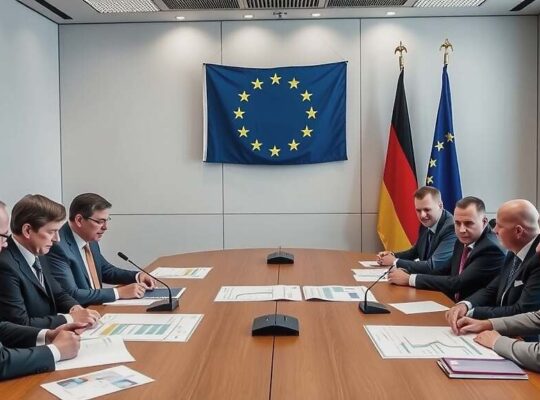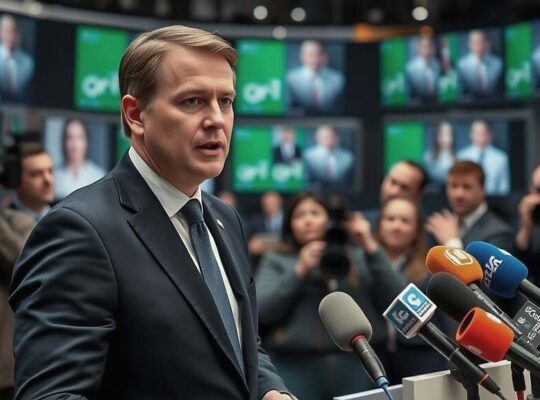A political intervention has averted potential payroll disruptions for thousands of civilian employees working at US military installations in Rhineland-Palatinate, Germany, following the ongoing US federal government shutdown. State Premier Alexander Schweitzer (SPD) announced Wednesday that negotiations between the state government and Federal Finance Minister Lars Klingbeil (SPD) secured a mechanism to guarantee continued salary payments.
The situation highlights a complex web of financial dependencies and potential vulnerabilities stemming from the US government’s inability to approve its budget. While the US is ultimately responsible for covering the salaries – totaling approximately €6.3 million for the affected Rhineland-Palatinate employees – the immediate risk of non-payment threatened livelihoods and underscored the ramifications for Germany’s hosting of US military personnel.
Klingbeil’s involvement and the subsequent decision to initiate an extraordinary expenditure have been lauded by Schweitzer, signaling a commitment to mitigating the repercussions of Washington’s political impasse. However, the need for this intervention also raises questions about the robustness of existing agreements and the potential for similar disruptions in the future. The reliance on a state-level rescue package underscores the potential for cascading effects across Germany, as similar issues are impacting regions including Bavaria, Baden-Württemberg and Hesse.
The logistical workaround, handled by the Rhineland-Palatinate supervisory and service authority (ADD), which administers payroll for civilian staff of all foreign military forces in Germany, is notable. While Germany will process the payments, drawing on funds ultimately provided by the US, the arrangement reveals a fragmented system that necessitates detailed coordination and potentially exposes the German government to financial risk. Critics contend that this reliance on emergency measures reflects a broader need to revisit international agreements surrounding US military presence in Germany and to establish more robust safeguards against the fallout of political gridlock in Washington. The swift action taken, while necessary, serves as a stark reminder of the potential for US political instability to impact allied nations and necessitates a reassessment of long-term security and economic dependencies.












